Both CBD and THC are cannabinoids present in cannabis plants, but they affect the body in distinct ways. The primary distinction is that THC causes a psychoactive “high,” whereas CBD does not.
As laws around hemp and other cannabis products expand across the United States, more people are exploring their choices. Two notable naturally occurring compounds in plants from the Cannabis genus are cannabidiol (CBD) and tetrahydrocannabinol (THC).

Although both interact with the endocannabinoid system, their outcomes for users can be very different.
Continue reading to learn more about these substances. While they share similarities, important differences guide how each should be used.
Here’s a concise overview of the primary distinctions between CBD and THC:
CBD
THC
is legalit depends (see below)
it depends (see below)
produces a high
no
yes
interacts with endocannabinoid system
yes
yes
has side effects
yes (see below)
yes (see below)
shows on drug test
possibly
yes
relieves pain
yes
yes
reduces nausea
yes
yes
eases migraine
yes
yes
reduces anxiety
yes
yes
eases depression
yes
no
decreases seizures
yes
no
is anti-inflammatory
yes
yes
helps with insomnia
yes
yes
helps with psychosis
yes
no
increases appetite
no
yes
is used for various other conditions
yes
yes
Keep in mind that cannabinoids affect individuals differently. Some people may experience benefits for the conditions listed above while others may not.
Is CBD legal?Hemp-derived CBD products containing less than 0.3 percent THC are federally legal, but some state laws still prohibit them. CBD derived from marijuana is illegal federally but allowed under certain state statutes. Review laws in your state and any place you plan to travel. Also remember that nonprescription CBD products are not FDA-approved and labels may be inaccurate.
What is CBD?
CBD can be extracted from either hemp or cannabis, both of which originate from the Cannabis sativa plant.
Legal hemp must contain . CBD products are marketed as gels, gummies, oils, supplements, extracts, and more.
CBD does not create the intoxicating “high” linked to cannabis use.
What is THC?
THC is the principal psychoactive chemical in cannabis responsible for the “high.” It can be consumed through smoking, and is also available in oils, edibles, tinctures, capsules, and other formats.
CBD vs. THC: Chemical structure
CBD and THC share the same molecular formula: , 30 hydrogen atoms, and 2 oxygen atoms. A minor variation in the arrangement of these atoms explains why they affect the body differently.
They resemble your body’s natural endocannabinoids, enabling them to bind with cannabinoid receptors and influence neurotransmitter release in the brain.
Is CBD as powerful as THC?
Although their chemical formulas are similar, CBD and THC differ in psychoactive properties. CBD is psychoactive in a different way from THC and does not induce the classic cannabis high.
THC attaches to the brain’s cannabinoid 1 (CB1) receptors, generating euphoria or a feeling of being “high.”
CBD vs. THC: Legality
U.S. laws surrounding cannabis are continually changing. Technically, CBD remains classified as a Schedule I substance under federal statutes.
While hemp was removed from the Controlled Substances Act, agencies like the DEA and FDA still regard CBD as Schedule I.
As of April 2023, 38 states, plus D.C., Puerto Rico, Guam, and the U.S. Virgin Islands, have authorized medical cannabis with substantial THC levels.
An additional 10 states permit access to limited low-THC cannabis or CBD oil.
In many cases, medical cannabis must be recommended by a licensed physician. Some states also permit recommendations from licensed physicians and advanced practice registered nurses.
Moreover, 24 states, along with D.C., Guam, and the Northern Mariana Islands, have legalized recreational cannabis. In those jurisdictions, CBD should be available for purchase.
Before buying CBD or THC products, check your state’s regulations.
Possessing cannabis products in states where they’re illegal, or without a medical recommendation where required, could lead to criminal penalties.
CBD vs. THC: Medical benefits
CBD and THC share many therapeutic properties and may be useful for similar ailments. However, dosage, frequency, and product purity can influence individual outcomes.
CBD
In June 2018, the approved Epidiolex, the first prescription medication containing CBD. It is derived from cannabis and refined to an isolate that’s 99% pure CBD.
It’s prescribed for rare, treatment-resistant epilepsy forms. (Epidiolex is not currently approved for the other conditions mentioned below.)
Aside from that, over-the-counter CBD products like CBD oil are often used by people seeking symptom relief for various conditions. Read more about the potential health benefits of CBD oil.
Research indicates CBD may offer some advantages in alleviating symptoms of depression, anxiety, insomnia, and schizophrenia, though the FDA hasn’t approved it for these uses.
Further studies are required to confirm CBD’s effectiveness for these and other conditions.
THC
The has approved two synthetic THC formulations for specific medical uses: nabilone and dronabinol.
Nabilone (Cesamet) is FDA approved for chemotherapy-related nausea and vomiting.
Dronabinol (Marinol, Syndros) is approved to treat nausea and vomiting caused by chemotherapy and to stimulate appetite in people with AIDS or anorexia.
THC is commonly used to alleviate nausea, stimulate appetite, relieve pain, and help with sleep disturbances.
Researchers are exploring THC’s potential for treating fibromyalgia and various chronic pain disorders.
Is THC more effective than CBD for pain?
Unlike THC, CBD has very weak binding affinity, if any, for CB1 receptors. CBD may require THC’s presence to influence CB1 receptor activity and can mitigate some of THC’s unwanted psychoactive effects like euphoria or sedation.
There is limited research directly comparing CBD and THC for pain relief. In surveys where people favored CBD for chronic neuropathic pain, higher potency didn’t necessarily translate to greater perceived benefit.
Clinical observations suggest individuals who notice rapid symptom relief for pain after using cannabis often select products with higher THC levels than CBD.
Evidence also supports that a combination of THC and CBD may be most beneficial for pain management.
CBD vs. THC: Side effects
CBD is generally well tolerated, even at high doses. Reported adverse effects are often due to interactions between CBD and other medications, and in some cases may include liver injury.
THC can produce short-term side effects and potential long-term psychiatric consequences, associated with its psychoactive nature.
Neither CBD nor THC is known to be lethal.
However, heavy THC use has been linked to long-term psychiatric concerns, particularly in adolescents consuming large quantities.
Chronic cannabis use can contribute to an amotivational state characterized by depressive symptoms and reduced drive.
That said, current evidence does not conclusively show that cannabis use directly causes psychiatric disorders such as schizophrenia.
CBD vs. THC: Drug testing
Cannabinoids like THC and CBD accumulate in fat tissue and can be detectable on drug screens for days to weeks after use.
Not all drug tests detect CBD, but specialized CBD-sensitive tests exist. Typical workplace screens search for THC-related metabolites, so THC or cannabis use may be revealed.
Hemp-derived products can contain trace THC in addition to CBD, which could produce a positive result even without intentional THC consumption.
Products claiming to be THC-free may still contain THC, so avoid CBD or hemp products if you anticipate a drug test.
Learn more about CBD’s potential to show up on drug screenings.
Frequently asked questions
Does smoking CBD affect your heart?
Certain CBD products like oils, gummies, and gels may have , such as relieving pain, reducing seizures in epilepsy, and easing anxiety.
Smoking cannabis could pose risks for people with cardiovascular disease because it can raise heart rate, worsen arrhythmias, reduce oxygen supply to the heart, and elevate blood pressure.
That said, reviews comparing short- and long-term cannabis use report limited evidence linking smoking cannabis directly to cardiovascular disease.
How does smoking CBD make you feel?
According to the , smoking CBD can produce drowsiness, sleepiness, and irritability. It may also cause gastrointestinal effects like diarrhea or reduced appetite.
Is CBD healthier than THC?
Both CBD and THC offer medical advantages, such as pain control. However, CBD is a nonintoxicating compound, meaning it does not cause the euphoric sensation associated with cannabis. Some people prefer CBD because it lacks that particular side effect.
Is it safe to smoke CBD daily?
Per the , smoking cannabis may harm lung health and raise the risk of bronchitis. More research is needed on the long-term effects of daily smoking.
Smoking CBD every day is not a recommended approach for managing chronic conditions. Discuss treatment options with a healthcare provider to determine whether the potential harms of daily smoking outweigh any perceived benefits.
Takeaway
Both CBD and THC have therapeutic potential and are generally considered safe when used appropriately, but each carries possible side effects and drug interactions. Consult your physician or a qualified cannabis clinician if you have questions before using these products.
Want to learn more about CBD? Click here for additional product reviews, recipes, and research-based articles about CBD from Healthline.

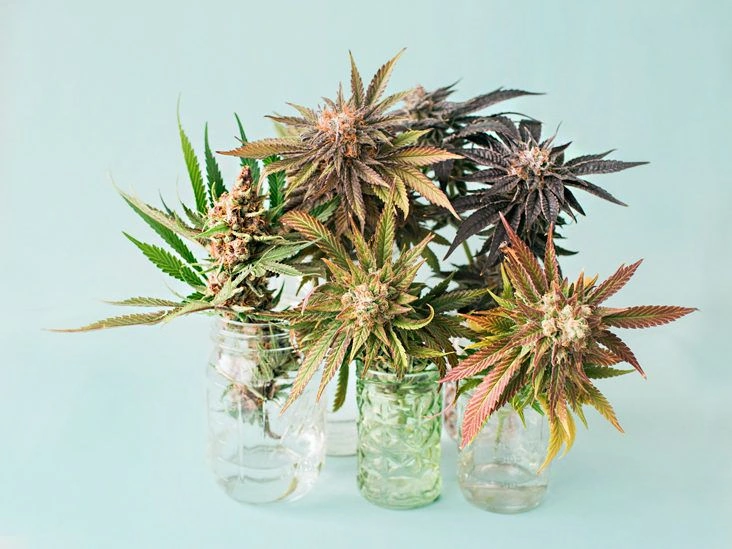
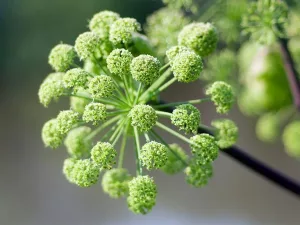


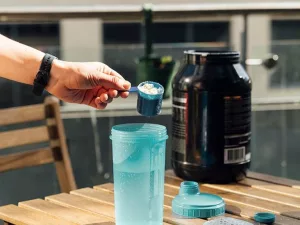

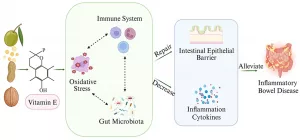


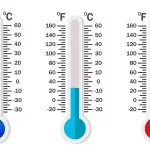
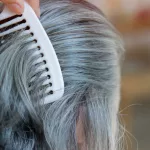
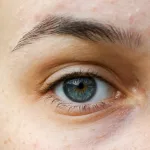
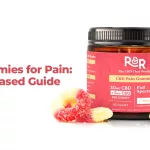


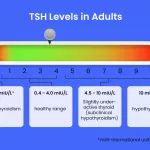
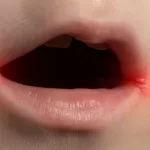







Leave a Reply
You must be logged in to post a comment.